by Valinda Kimmel
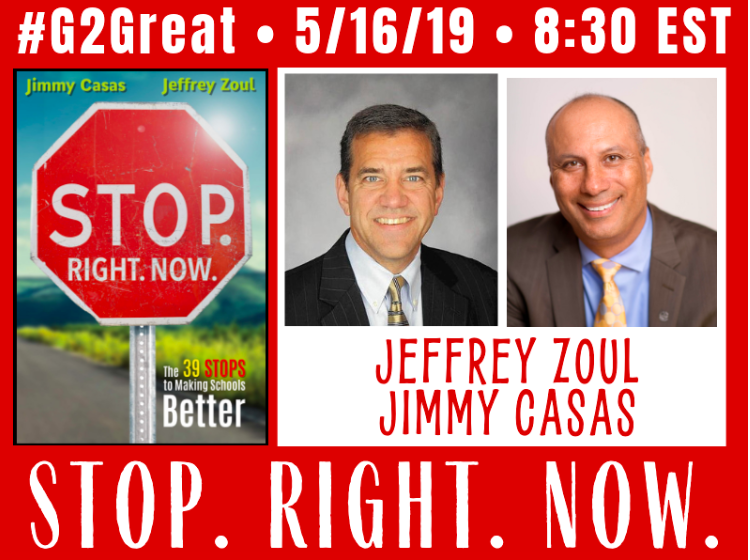
When educators are together, we spend the bulk of our time talking about all the things that need to be implemented. ASAP.
We don’t, however, often talk at length about the practices that should be avoided. That conversation, however, is critically important and thanks to Jimmy Casas and Jeffrey Zoul we have a clear, concise resource to start (and continue) the dialogue.
Before we get to details from the chat, let’s hear about the book from the authors themselves.

Most schools are mostly amazing places. Yet, for far too long in education, we have continued to do many things simply because “we have always done them.” In writing this book, our hope was to motivate other educators to fight to change what is no longer working in our schools and focus on what does.

We hope that after reading this book, educators will continue doing many of the great things they are already doing. At the same time, we hope to challenge educators to stop doing those things that are counterproductive to maximizing student performance and start doing what matters most.

We believe that teaching is the most noble profession imaginable. Almost every teacher we know, gives the profession their very best each and every day. The job is rewarding, but extremely demanding. We cannot waste our teachers’ or students’ time on things that do not matter most.
How fortunate we are to have two educators such as Jeffrey and Jimmy to speak to this critical issue of shutting down the practices that do not contribute to the academic and personal success of the kids in our classrooms. Take a look at the contributions from our #g2great PLN from Thursday evening.
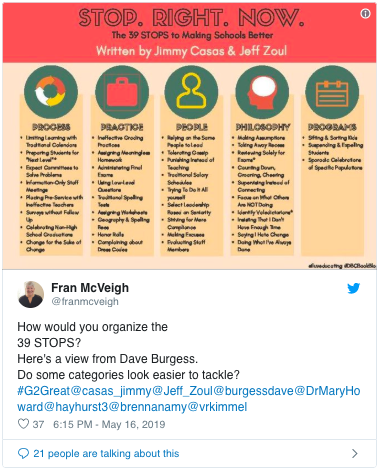
Many thanks to Fran McVeigh for sharing this chart from Dave Burgess. It’s incredibly helpful to see the 39 STOPS in a clear concise format.
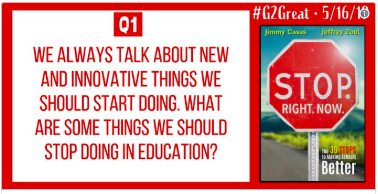
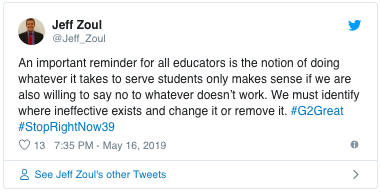
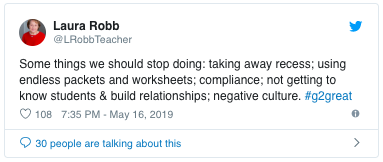
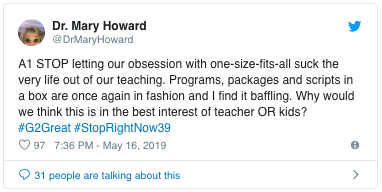
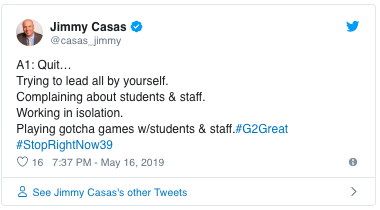
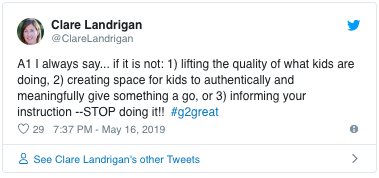
Engaging in practices that kids need based on what we hear and observe, has been, and will forever, be the best way for teachers to determine what kids need. We will never get that valuable information from a box, or computer program. For that reason, we must be alert to the practices that are not adding value to students’ learning and development.
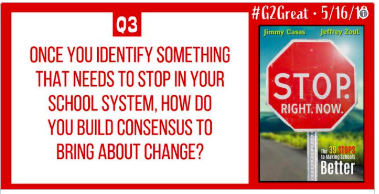
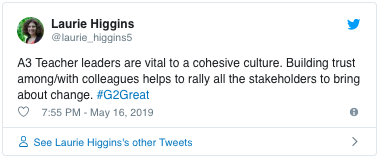
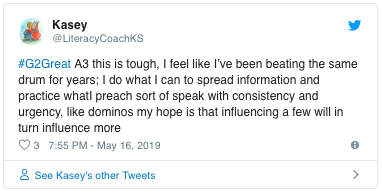
It was said over and over during our chat that teachers must work in collegial ways to affect change. True change is difficult to see when decisions are made from those farthest from the everyday work. Campus administration that invites collaboration from all staff are wise to include “stakeholders” in the important process evaluating teaching and learning in an effort to choose what matters most.
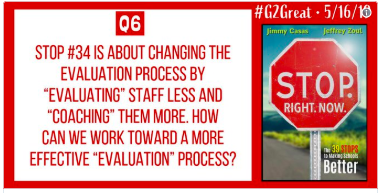
The old adage of “Don’t Weigh the Elephant–Feed the Elephant” has perfect application here. Teachers need far more “input” in relation to the amount of evaluation of their practice. In education, when we spend more time, energy, resources on providing coaching support for teachers, we see personal reflection that leads teachers to seek out solutions (research-based) that align to their students’ unique needs.
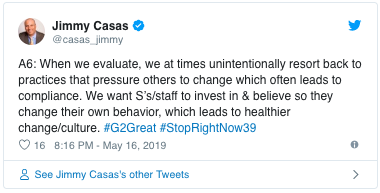
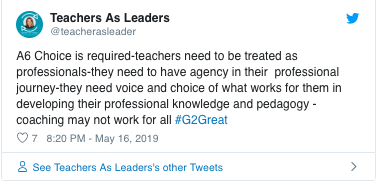
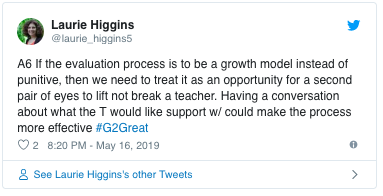
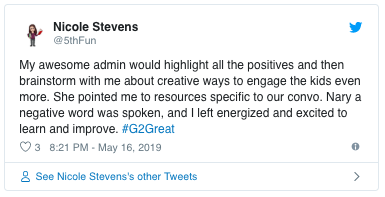
We can talk about practices that we need to abandon in favor of ones that benefit students, but if we’re not replacing the poor practices with those that support our kids toward academic and life success, then we fail both teachers AND students. That’s where building teachers’ capacity through coaching and collaborative support leads to success for all. Teachers have autonomy and new practices/resources to implement in the absence of the poor practices that were abandoned. If we expect teachers to cease the “less than” practices, we must empower and embolden them through collaborative coaching.
Many thanks to Jeffrey Zoul and Jimmy Casas for their book, Stop. Right. Now.: 39 Steps to Making School Better. And much gratitude to all the amazing educators who return to #g2great chat week after week to share their knowledge, wisdom and insight.